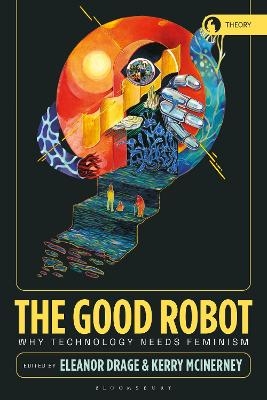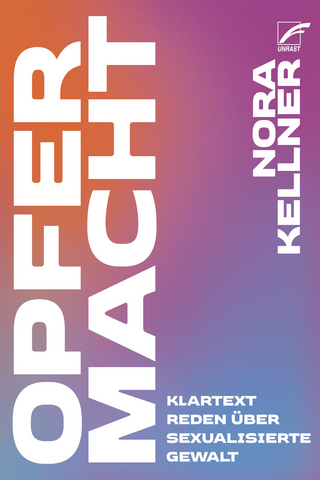
The Good Robot
Bloomsbury Academic (Verlag)
978-1-350-39995-2 (ISBN)
While the question of whether various AI and technological advances can be ethical is not new, the embedded nature of feminist perspectives pulls out whether this perceived ‘goodness’ or ‘wrongness’ might actually impact our lives in the 21st century. This book explores both the radical possibilities of technology to disrupt practices of patriarchy, colonialism, racism and beyond but also provides a significant critique of how we can contain the ethical possibilities of entities we cannot predict. In exploring unjust technological practices and engaging critical voices in the tech industry, the existing moral issues are brought to light as well as the possible ethical quagmires.
This book opens a new space of discussion on digital technologies – one that insists that the future of AI is an urgent feminist issue.
Eleanor Drage is a Senior Researcher at the University of Cambridge, UK, where she uses feminist and anti-racist ideas to prevent and contest harmful uses of AI and improve AI providers' engagement with the EU AI act. She is co-host of The Good Robot podcast. Kerry McInerney is a Research Associate at the University of Cambridge, UK and one of 100 Brilliant Women in AI Ethics™ 2022. She is co-host of the podcast The Good Robot and contributor to The Guilty Feminist project.
Preface
Acknowledgements
Introduction: Good Technology Is Feminist, Eleanor Drage and Kerry McInerney (Leverhulme Centre for the Future of Intelligence, UK)
Part I: Good Relations
1. Good Technology Is Cooperative, Blaise Agüera y Arcas (Google Research)
2. Good Technology Is Messy, Jason Edward Lewis (Concordia University, Canada)
3. Good Technology Is Biophilic, N. Katherine Hayles (Duke University, USA)
4. Good Technology Is Earthly, Rosi Braidotti (Utrecht University, the Netherlands)
5. Good Technology Is Intergenerational, Sneha Revanur (President of Encode Justice)
Part II: Good Systems
6. Good Technology Is Inclusive, Margaret Mitchell (Chief Ethics Scientist at Hugging Face)
7. Good Technology Is Possible - But There Are Conditions, Soraj Hongladarom (Chulalongkorn University, Bangkok)
8. Good Technology Is Community-Centric, Jennifer Lee (American Civil Liberties Union Washington, USA)
9. Good Technology Is Participatory, David Adelani (University College London, UK)
Part III: Good Designs
10. Good Technology Is Vulnerable, Os Keyes (University of Washington, USA)
11. Good Technology Is Slow (to Scale), Ranjit Singh (Data & Society Research Institute)
12. Good Technology Accessible, Not Just “Good Enough”, Meryl Alper (Northeastern University, UK)
13. Good Technology Needs an Emergency Exit Door, Priya Goswami (Co-Founder of Sahiyo and Mumkin)
14. Good Technology…Invites Response, hannah holtzclaw (Simon Fraser University, Canada) and Wendy Hui Kyong Chun (Simon Fraser University, Canada)
Part IV: Good Visions
15. Good Technology Is a Portal to Other Worlds, Neda Atanasoski (UC Santa Cruz, USA) and Felicity Amaya Schaeffer (UC Santa Cruz, USA)
16. Good Technology Is/Not Asian Women, Anne Anlin Cheng (Princeton University, USA)
17. Good Technology Holds Up a Mirror to Ourselves, Michele Elam (Stanford University, USA)
18. Good Technology Needs Good Stories, Kanta Dihal (Leverhulme Centre for the Future of Intelligence, UK)
Part V: Good Rebellions
19. Good Technology Challenges Power, Catherine D’Ignazio (Massachusetts Institute of Technology, USA)
20. Good Technology Is Free (At Least for a Moment), Frances Negrón-Muntaner (University of Columbia, USA)
21. Good Technology Defies its Military Origins, Kate Chandler (Georgetown University, USA)
22. Good Technology Is a Fantasy, Jack Halberstam (Columbia University, USA)
| Erscheinungsdatum | 10.02.2024 |
|---|---|
| Reihe/Serie | Theory in the New Humanities |
| Zusatzinfo | 46 bw illus |
| Verlagsort | London |
| Sprache | englisch |
| Maße | 156 x 234 mm |
| Themenwelt | Geisteswissenschaften ► Philosophie |
| Naturwissenschaften | |
| Sozialwissenschaften ► Politik / Verwaltung ► Politische Theorie | |
| Sozialwissenschaften ► Soziologie | |
| ISBN-10 | 1-350-39995-7 / 1350399957 |
| ISBN-13 | 978-1-350-39995-2 / 9781350399952 |
| Zustand | Neuware |
| Haben Sie eine Frage zum Produkt? |
aus dem Bereich


